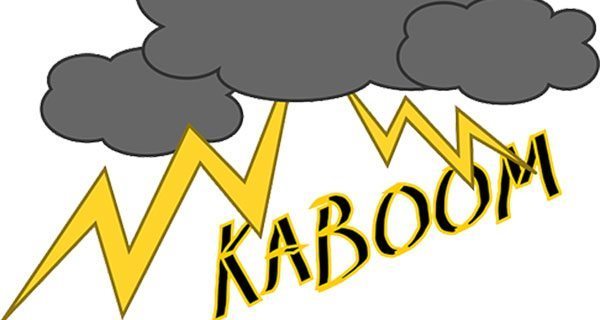 Canadian Thanksgiving was a blast for climate change propagandists. Monday’s turkey was in the oven as the Intergovernmental Panel on Climate Change (IPCC) warned that increasing carbon dioxide would destroy the Earth.
Canadian Thanksgiving was a blast for climate change propagandists. Monday’s turkey was in the oven as the Intergovernmental Panel on Climate Change (IPCC) warned that increasing carbon dioxide would destroy the Earth.
Elsewhere, there was an explosion at Canada’s largest oil refinery. The next day, a pipeline exploded in British Columbia. It was described by witnesses as a “sonic boom” from a “mushroom cloud of fire” rising 60 metres into the air, a “massive, massive fireball” that was “raining ash.”
Enemies of Canada’s oil industry could not have scripted a better sequence.
But Canadians should pay little heed to the sensationalism.
Apparently the sky is falling, er, thickening. The IPCC proclaimed that governments around the world must make “rapid, far-reaching and unprecedented changes in all aspects of society” or face extreme droughts, fires, floods and food shortages. Apparently, by 2030 world carbon emissions need to be just over half of what they were in 2010 just to keep post-1800s global warming to 1.5 degrees Celsius. Otherwise, hurricanes like Harvey and Florence will become commonplace.
“Every extra bit of warming matters,” said Hans-Otto Portner, co-chair of IPCC working group II, or we face the risk of “irreversible changes, such as the loss of some ecosystems.”
What next? Teach the children to sing about it, like Monty Python did with, Every Sperm is Sacred? Or ban body heat and sex to make fewer Lovers in a Dangerous Time and prevent overpopulation, too. Eat Thanksgiving turkey raw, since “every bit of warming” jeopardizes ice caps and coral reefs.
Why the hyperbole?
“Moral panic benefits its creators,” explains Scott Bonn in Psychology Today. In How and Why Societal Elites Manipulate Public Fear, he describes moral panic as “a situation in which public fears and state interventions greatly exceed the objective threat posed to society by a particular individual or group who is/are claimed to be responsible.”
Eventually, “public hysteria over a perceived problem often results in the passing of legislation that is highly punitive, unnecessary, and serves to justify the agendas of those in positions of power and authority.”
It’s hard to imagine a doomsday scenario with higher stakes, more exaggeration and greater calls for government intervention than these IPCC warnings. This clear demonstration of moral panic is not the only reason to doubt them.
Little has changed since 1996, when eminent physicist Frederick Seitz blasted the second IPCC report. He complained that despite his 60 years as a scientist, he had “never witnessed a more disturbing corruption of the peer-review process than the events that led to this IPCC report.” Earlier this decade, hackers and information requests revealed the “Climategate” emails. Leading scientists ostracized their opponents, overstated their certainty, manipulated the data, and sought to hide their communications. The cause of climate change overruled scientific ideals of transparency and open inquiry to back calls for the radical responses they believed in.
Recent analysis has not only put the UN panel’s conclusions in doubt, but also the data upon which they are based. “Land Surface Air Temperature Data Are Considerably Different Among BEST-LAND, CRU-TEM4v, NASA-GISS, and NOAA-NCEI,” said the report by Rao, Liang and Yu, published in May 2018 in the Journal of Geophysical Research. Elsewhere, John McLean received a PhD from James Cook University for his thesis An Audit of the Creation and Content of the HadCRUT4 Temperature Dataset. MacLean demonstrated that the main dataset used by the IPCC is neither accurate nor reliable for more than 70 reasons. These include obvious errors, data too sparse to be used for broader assumptions, and dubious adjustments to the data that exaggerate warming. The temperature of the entire southern hemisphere from 1850 to 1853 is based on one site in Indonesia and some random ships, and that’s just the start.
And what of the explosions?
The one in B.C. occurred the second Tuesday of October, just as it did when climate activists co-ordinated the shut-off of five pipelines in 2016. To celebrate this two-year anniversary, a Minnesota judge exonerated three of those activists, saying that the climate crisis actually justified their otherwise illegal actions. This is a disturbing development, since paid security at every facility is not feasible, and valve shutoffs can make pipelines burst or even explode under the intense pressure.
Despite more than 60 years of pipelines in Canada, only 40 spills have occurred under federally-regulated pipelines. Although any spill is unfortunate, the safety level is far closer to zero than railway transportation. The B.C. explosion threatened one million customers, demonstrating that oil, gas and pipelines are an economic and practical necessity.
After the ink is dry and the fires contained, that – and not the temperature 150 years ago or 50 years from now – is what we know.
Lee Harding is Research Fellow for the Frontier Centre for Public Policy.
The views, opinions and positions expressed by columnists and contributors are the author’s alone. They do not inherently or expressly reflect the views, opinions and/or positions of our publication.


